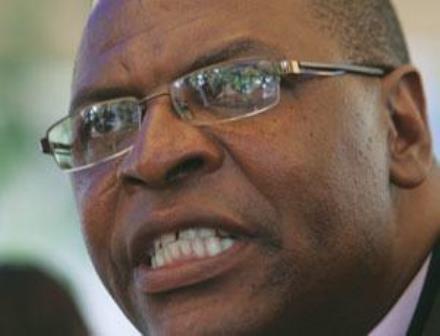

GiGo – garbage in garbage out – is the mantra of computer programming and mathematical rational that when you input nonsensical data into a computer system the result is nonsensical analysis.
I hear this ‘theory’ was first profiled in 1963 by a New York computer technician called George Fuechse who was working for IBM, the world famous computer conglomerate.
It may sound cruel and insensitive to apply this GiGo analogy to voting, but would it not be equally rational to conclude that what we vote in is exactly what we vote out – ViVo?
Thus if for the past few weeks I have come across as monotonously obsessed on matters plebiscite, excuse me, I am Zimbabwean!
We citizens in this part of Southern Africa have this fatalistic affinity with all manner of elections.
Agreed that political voting, in any modern-day civilisation, is a critical factor in the democratic algorithm, but now it is too often that our nation is caught up in this electoral vicious circle.
In Zimbabwe, it has become a national pasttime where the incumbent government uses elections as the only means to express its desperate pursuit of political legitimacy.
Our sickly economy cannot bear the burden anymore, but who cares to listen? Come to think of it, this has been part of the problem, not a solution to our economic and social woes.
- Chamisa under fire over US$120K donation
- Mavhunga puts DeMbare into Chibuku quarterfinals
- Pension funds bet on Cabora Bassa oilfields
- Councils defy govt fire tender directive
Keep Reading
This crude paradox is difficult to explain, yet easy to comprehend because generally when citizens vote, they expect a positive change in their lives.
In our case, elections are not only emotionally distressing, but also drive us further into an irreversible state of desperation. Tragically, they impose on us the GiGo/ViVo phenomenon.
Nevertheless, to say the recent expulsion from Parliament of a sizeable stock of ‘elected’ representatives of two political parties caused a constitutional crisis would be an exaggeration because Zimbabwe has always been, since 1980, in a state of constitutional uncertainty.
Otherwise, why would a ‘normal’ country – within a period of thirty-five years – have nineteen constitutional amendments and three major constitutional reviews?
The tragedy I intend to expose is not much of the irritating frequency of electoral reforms as it is about voters not coming to grips with ViVo that we eat what we vote for.
Whom we vote into public office determines the quality of our democracy, the depth of Parliamentary debates, our social and economic fortunes.
Among other factors of self-inflicted misery, we Zimbabweans have assumed a ‘respectable mantle’ on the podium of pariah status nations because of our failure to associate electoral expression with the quality of our lives.
Since year 2000 when there has been a semblance of democratic competition – give or take structural defects in the electoral process – a million or so Zimbabweans have habitually succumbed to ZANU.PF’s electoral deceit.
The allure of ‘free land’, indigenisation, empowerment and ‘sovereignty’ combined with the promises of frivolous victory over ‘Western imperialism’ are some of the factors used to hood wink gullible voters.
True that President Robert Mugabe’s party has abused State-sponsored violence and appeals to fear to achieve its undesirable hegemony, but those that have tilted the electoral balance in his favour have done so voluntarily.
Why I say so – and you have a right to disagree – is that 30 or so years into independence, we cannot claim that five million Zimbabweans do not know of the secrecy of the ballot.
Yes, claims of vote rigging and skewed electoral processes are genuine, but those who eventually vote for Mugabe do so willingly and thus are culpable for the poverty and misery that afflicts our country to this day.
In more mature African democracies like Botswana, Zambia, Namibia, Kenya, South Africa, Ghana, Mozambique, Mauritius and Nigeria – to name but a few countries – electoral campaigns and voting patterns are based on real bread and butter issues.
Botswana is one of, if not the most politically and economically stable of SADC countries because its citizens know the direct link between economic prosperity and the ballot paper.
Despite its small population, our neighbour boasts a thirty billion dollar gross domestic product, 5% growth rate and a $16 00 income per capita.
The country has an $8 billion foreign currency reserve which means Tswanas have enough money to safeguard themselves against droughts; enough resources for critical capital and medical imports and capable of sustaining infrastructure development.
They have a ‘normal’ $2 billion serviceable debt overhang and are some of the happiest citizens on the planet.
If you choose to dislocate this ‘happiness index’ from the way that the people of Botswana vote, you are indulging in self-immolating delusion.
Just look at the state of our local authority service delivery – water crisis, potholes, corruption, and squatter settlements – and tell me that Zimbabweans have voted for the best there is of councillors.
Despite promises to ‘create two million jobs’, the Zanu PF government – and they ‘won’ with a two-thirds majority in July 2013 – is saddled with an economy of four million ‘employed’ vendors, debilitating power outages, a $12 billion debt overhang, 500 000 unhappy and underpaid public servants and a completely dysfunctional national infrastructure.
Electoral promises of ‘indigenisation’ and ‘empowerment’ have rewarded only the ruling elite while millions of citizens stranded on ‘farms’ queue for food relief.
Several years after the new constitution was promulgated into supreme law, the Bill of Rights is yet to be fully applied, public media is state controlled and citizens are still crippled with laws that restrict expression, association and assembly.
Most or all institutions that support democracy – especially Zimbabwe Elections Commission – are ‘contaminated’ with ZANU.PF patronage.
Of late, we have seen (and heard) Mugabe publicly confront his (elected) Finance minister, Patrick Chinamasa, over the bonus issue, proving beyond reasonable doubt that the quality of national governance has hit rock bottom.
These are all the signs and symptoms of a ViVo political malignant tumour.
So what are the object lessons we Zimbabweans can derive for future elections? Charisma and demagoguery fills up airport tarmacs and ‘crossover’ rallies, but it does not put bread on the tables, get men and women onto factory floors, make maternity fees affordable or provide clean water in taps.
Haranguing crowds at White City, Mucheke and Sakubva stadiums with emotional ‘party of excellence’, ‘sovereignty’ slogans and hypnotising them with brightly coloured regalia does not give half a million college graduates jobs.
Fancy electoral manifestos and neo-Pentecostal euphoria on its own cannot re-open Dabuka Marshalling yard, increase Kariba capacity to 3 000 megawatts or turn Mpilo Central Hospital into a state-of-the-art provincial medical referral centre.
Idi Amin, Napoleon Bonaparte, Mobutu Sese Seko, Adolf Hitler, Benito Mussolini all had charisma, were adored by millions and filled up stadiums.
What do they have to show for it other than misery, death, poverty and despair?
What counts is what manner of proficiency, depth, commitment, knowledge, a passion for delivery and people skills the man or woman on the ballot paper has.
Party members, and indeed Zimbabwean voters as a whole, will have to learn the ViVo axiom very fast.
The man or the woman you vote to be a councillor, Member of Parliament or Senator will be the defining truth between poverty and wealth, health and death, misery and happiness.
If you are deceived by ‘size of political parties’, loud music and gigantic public address systems, what you vote for will diminish the number, size and frequency of your meals.
The new and enlightened Zimbabwean voter of the next election must be one who can discern real issues and calculate whether or not electoral promises comply with his or her personal expectations.
That is how countries like USA, Great Britain, Germany, Japan and Australia have developed. This is why Zimbabwe falls several storeys below the successful political and economic storeys of Ghana, Botswana, Namibia, Zambia and Mauritius.
People in those countries vote with their heads, not with their hearts. Do not be stuck with a costly mistake for five -years, because the only other time you will see the man or woman you voted for, is five -years later. ViVo – you eat what you vote for.
Ncube is MDC president










